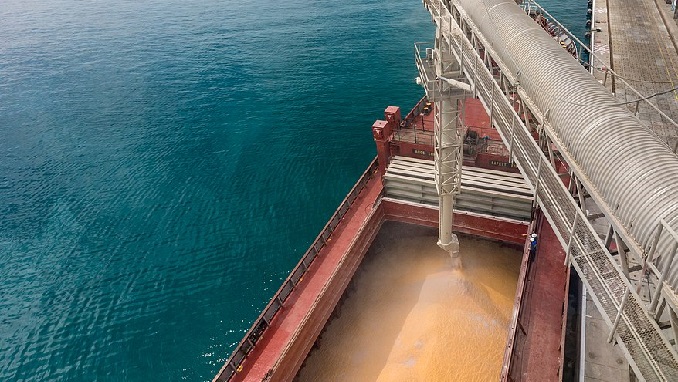After Kyiv rejected the Russian push for a reduced 60-day renewal of the UN-backed Black Sea Grain Initiative, talks continue to extend the deal that allows grain shipments from the Black Sea in Ukraine ahead of the looming March 18 deadline.
The United Nations and Turkey said on Tuesday that although Russia’s Deputy Foreign Minister Alexander Grushko announced that a deal had been agreed for a 60-day extension, Ukraine insists on sticking strictly to the previously agreed terms of the deal.
Demanding a 120-day renewal, Kyiv stressed that Russia’s proposal goes against the agreement.
Though in-person talks with Russia had ended in Geneva in the meantime, a UN spokesperson said “informal dialogue” between the organization and parties to the deal continued.
Turkey confirmed the info with the Turkish National Defense Ministry saying in a statement that, with demands of the parties taken into account, Defense Minister Hulusi Akar continues to negotiate and coordinate with the relevant authorities to carry on with the activities of the grain deal and to extend it in accordance with the agreement.
The ministry’s statement emphasized the importance of continuing this initiative which, on top of having a positive impact on humanity around the world, also proves that all crises can be resolved with goodwill and dialogue.
United Nations Secretary-General Antonio Guterres, on the other hand, seemed to be acquiescing to the Russian proposal with his spokesperson Stephane Dujarric explaining that, in the present circumstances, they must do everything possible to ensure the continuity of the Initiative.
The UN also acknowledged in its statement the existence of the obstacles Russia mentioned complaining about the deal not addressing them and said it was working to remove them.
Noting that the deal could not “stand on one leg,” Russia underscored obstacles to its own food and fertilizer exports posed by Western sanctions on its payments, logistics, and insurance industries.
David Beasley, executive director of the UN World Food Programme, also stressed that not only the export of Russian agricultural products is important in staving off a food crisis in poor counties, but Russian fertilizer is particularly important.
He warned that regardless of who loves or hates Russia, they got to have fertilizers right now if they don’t want to have hell on earth.



